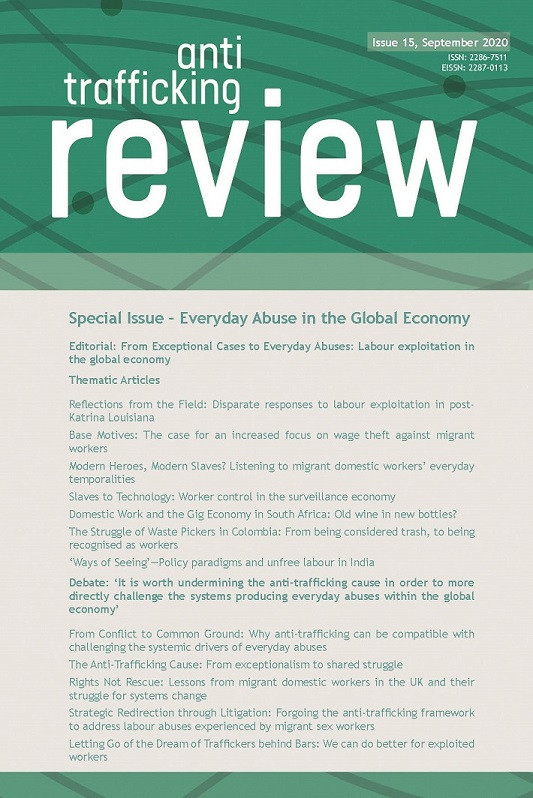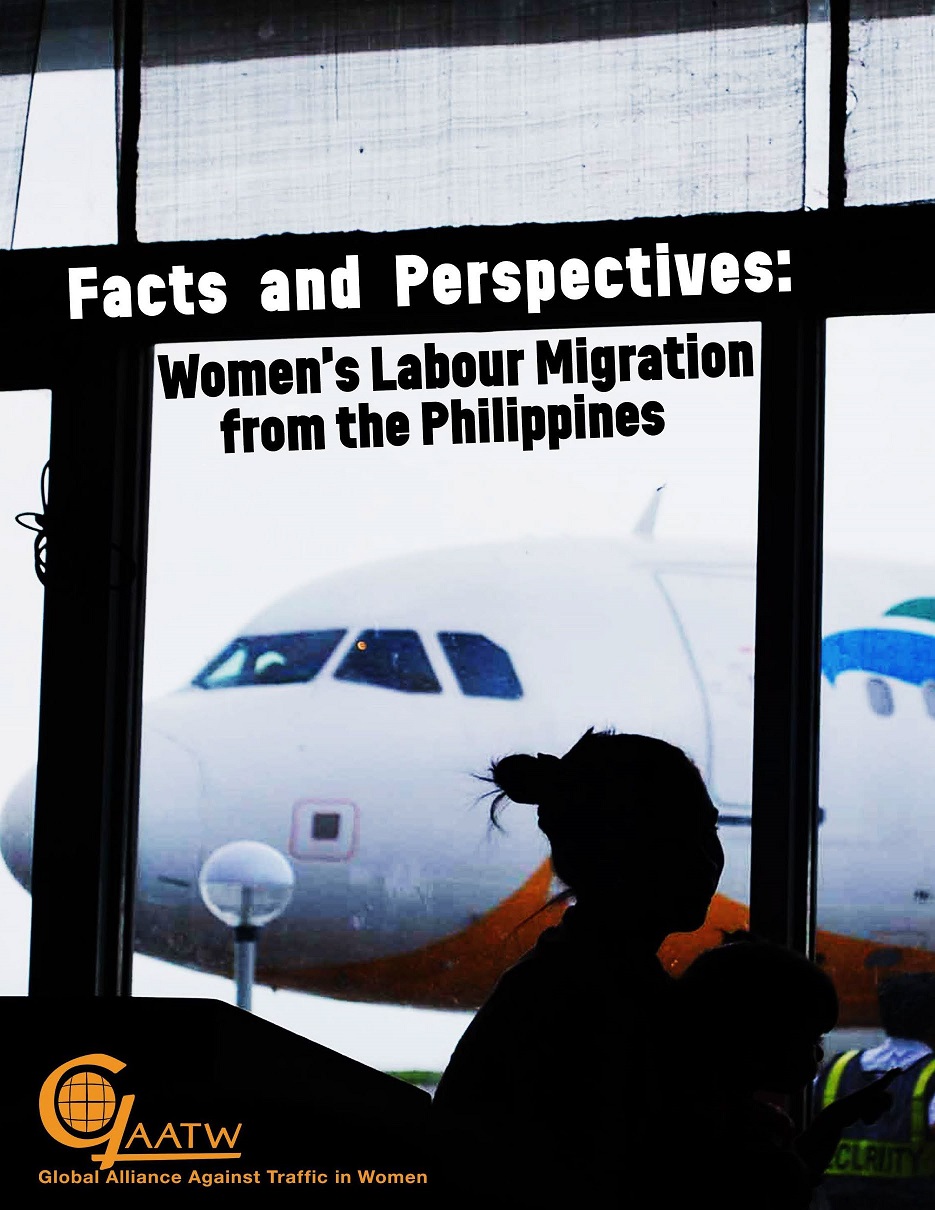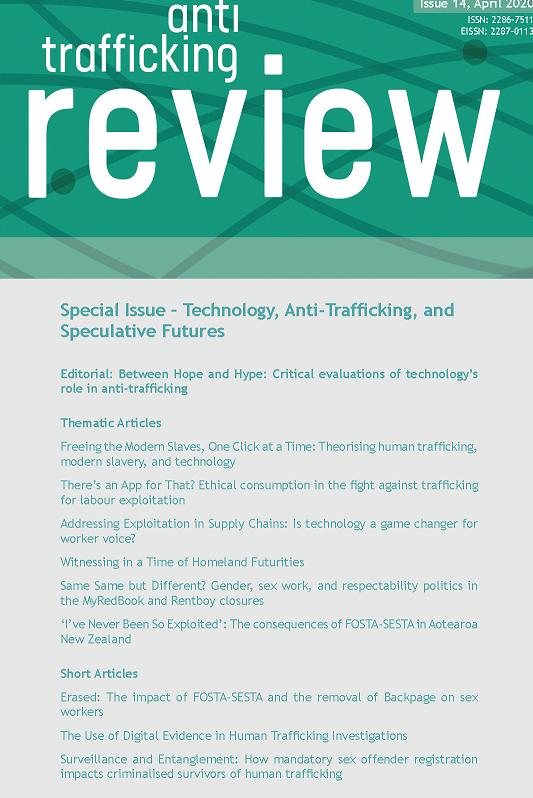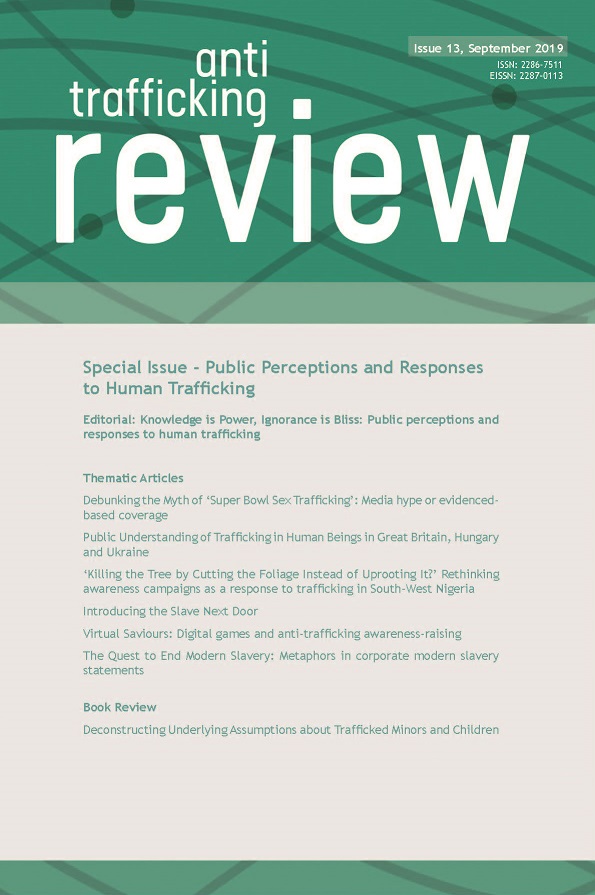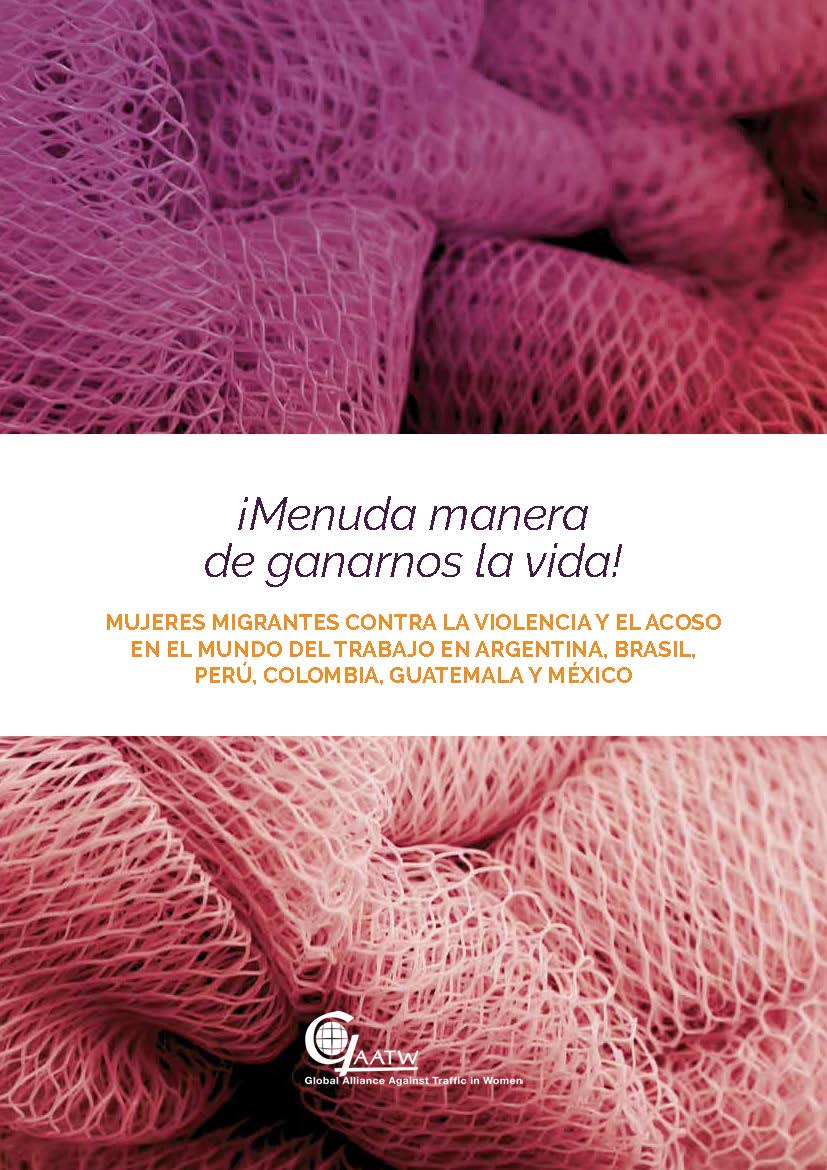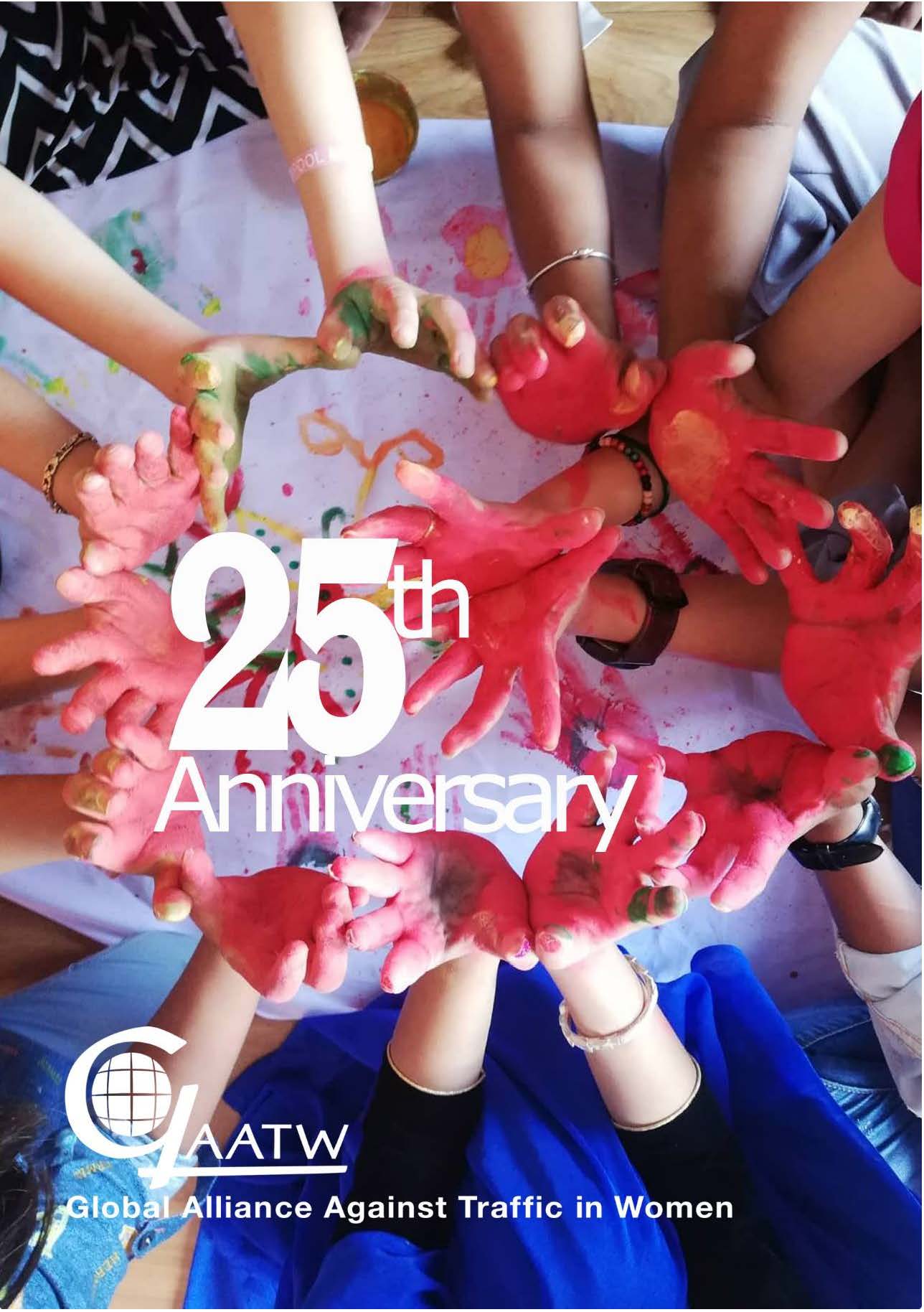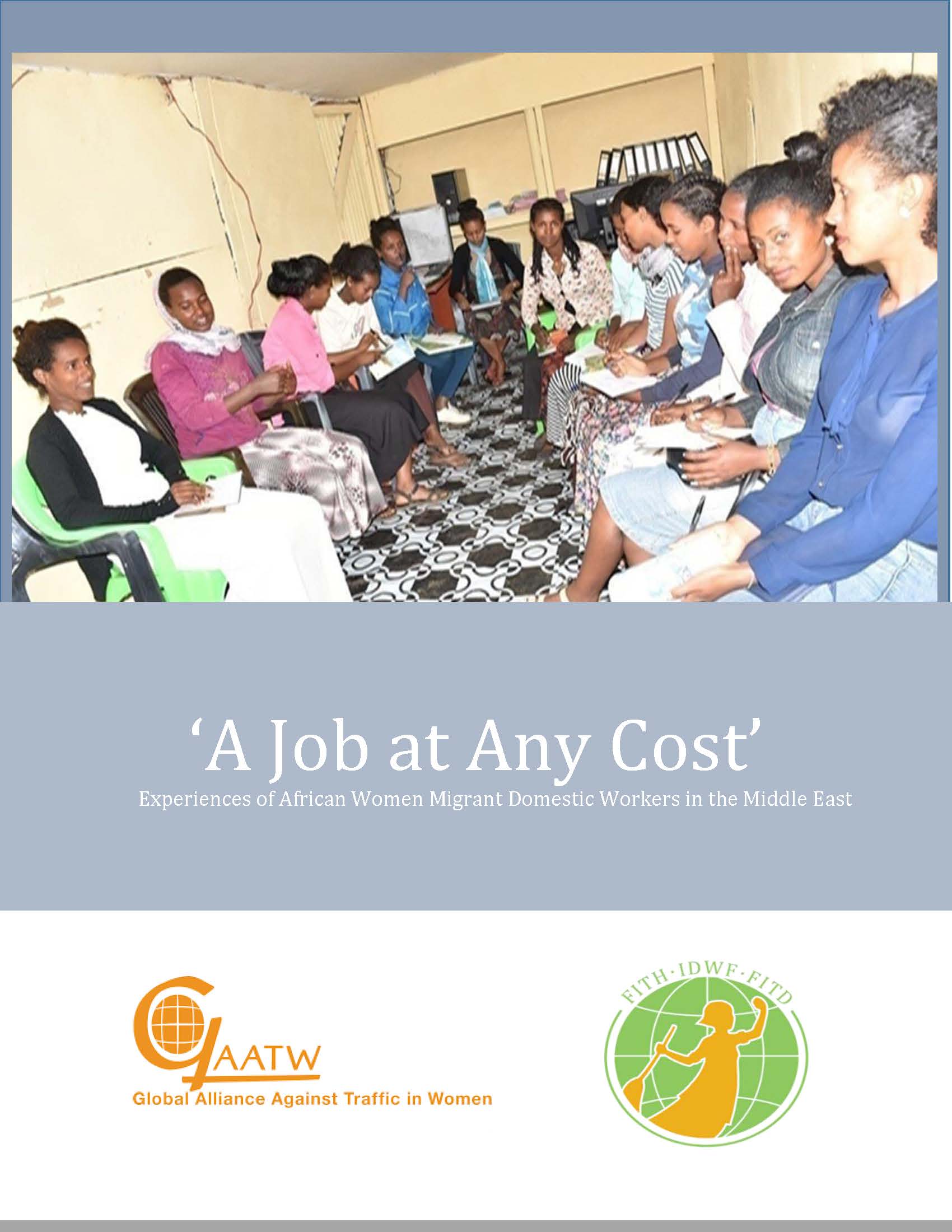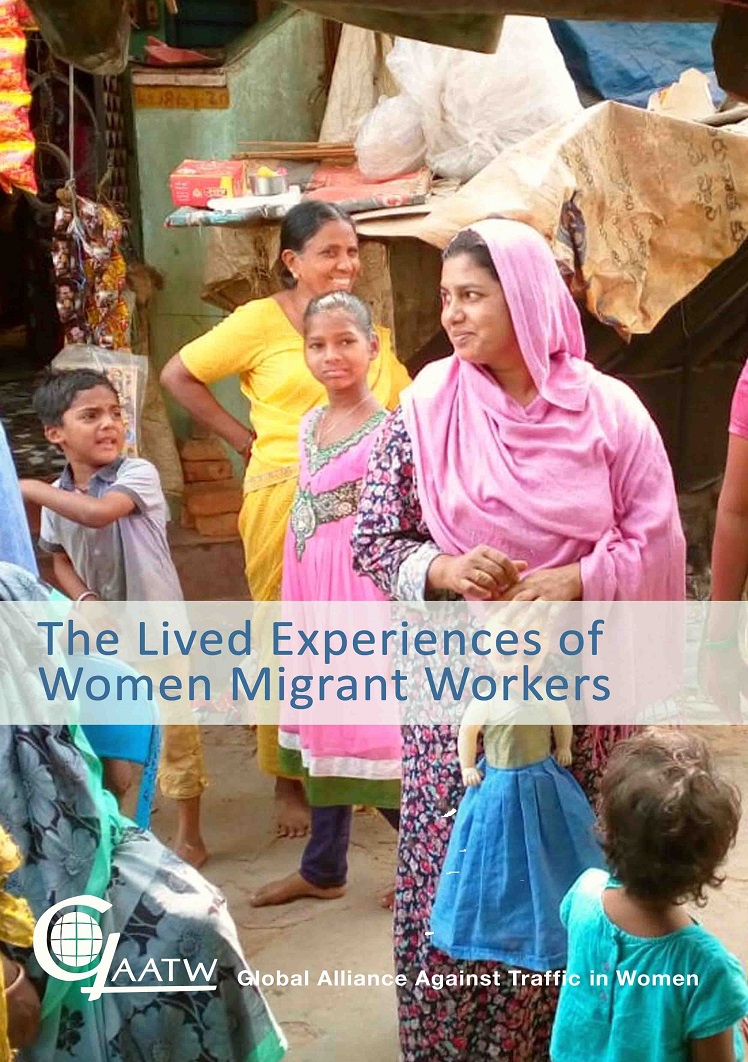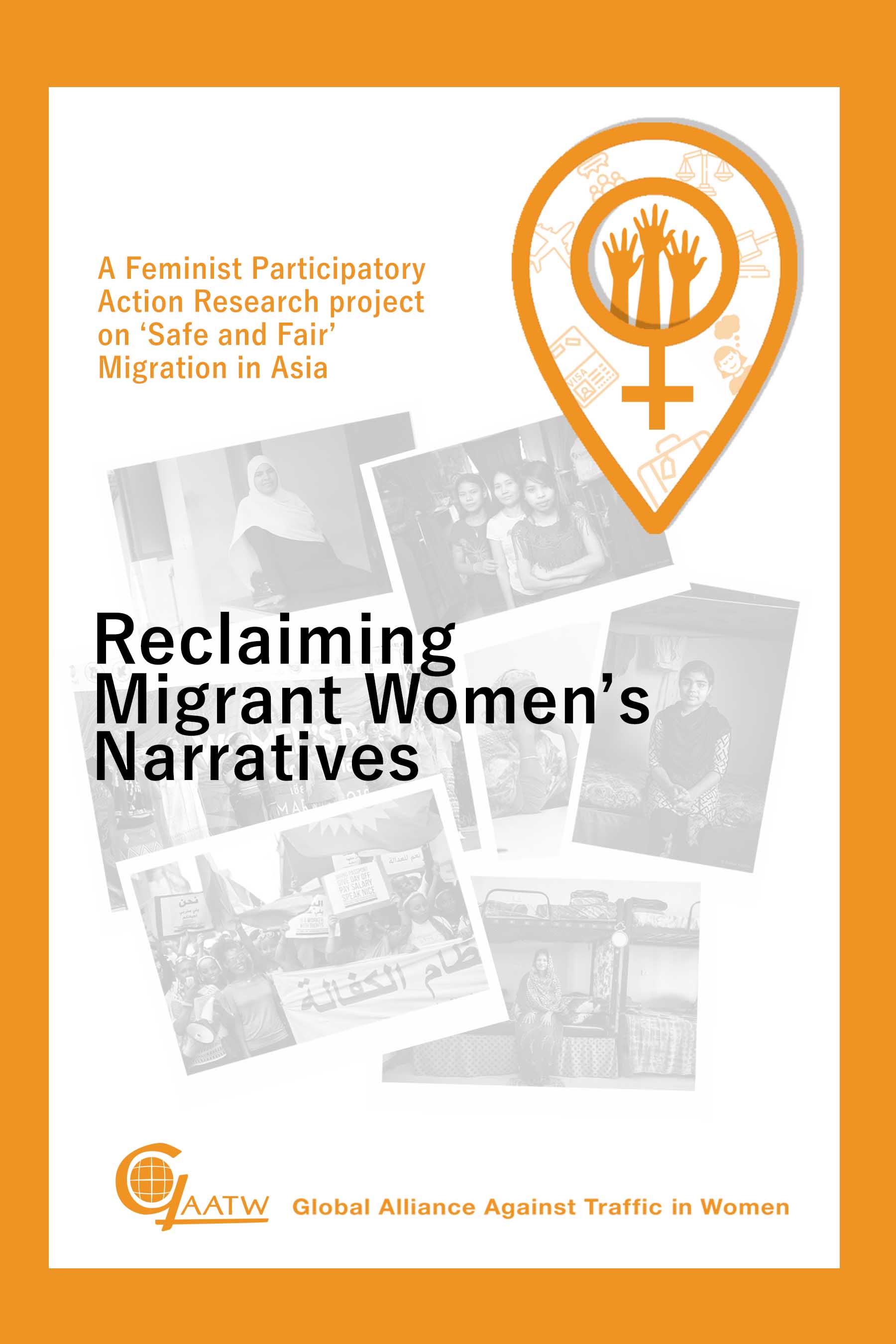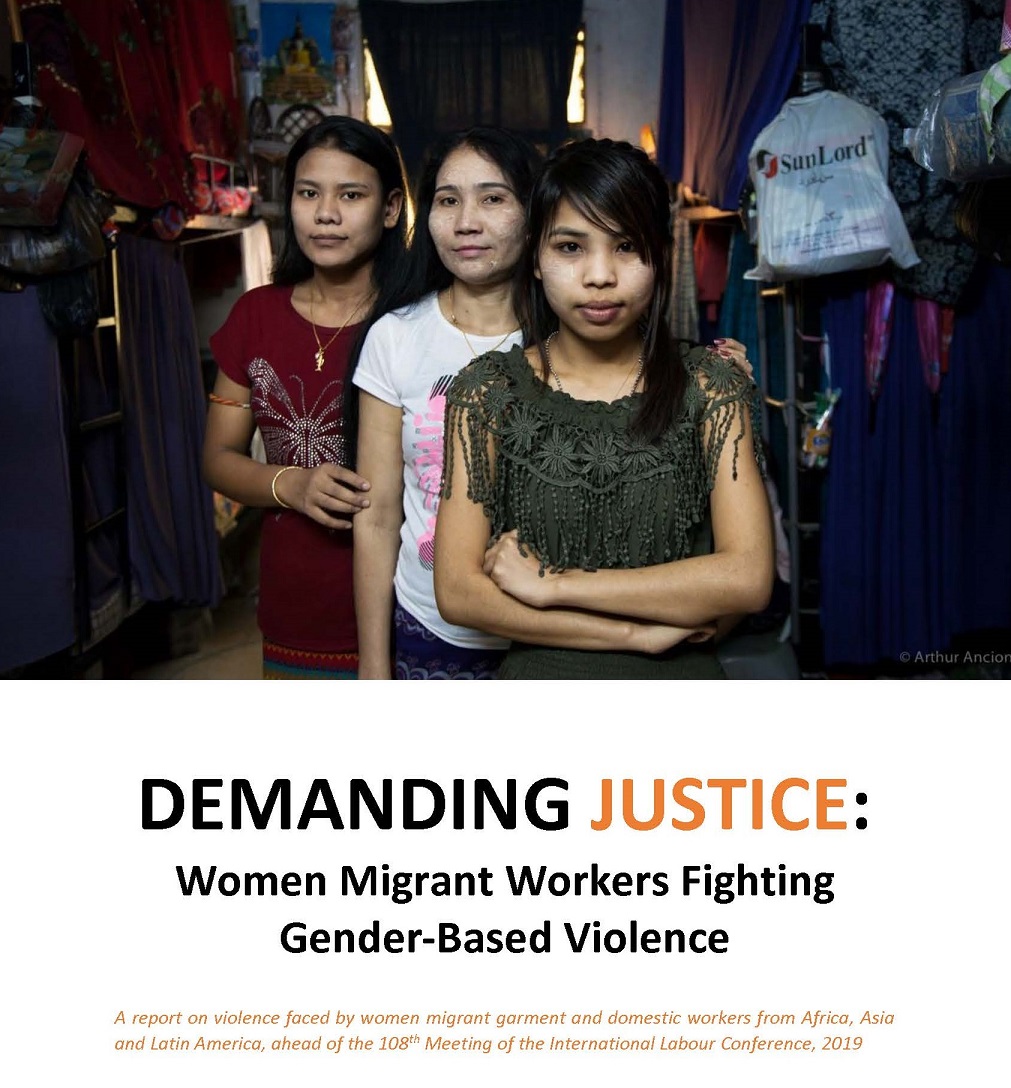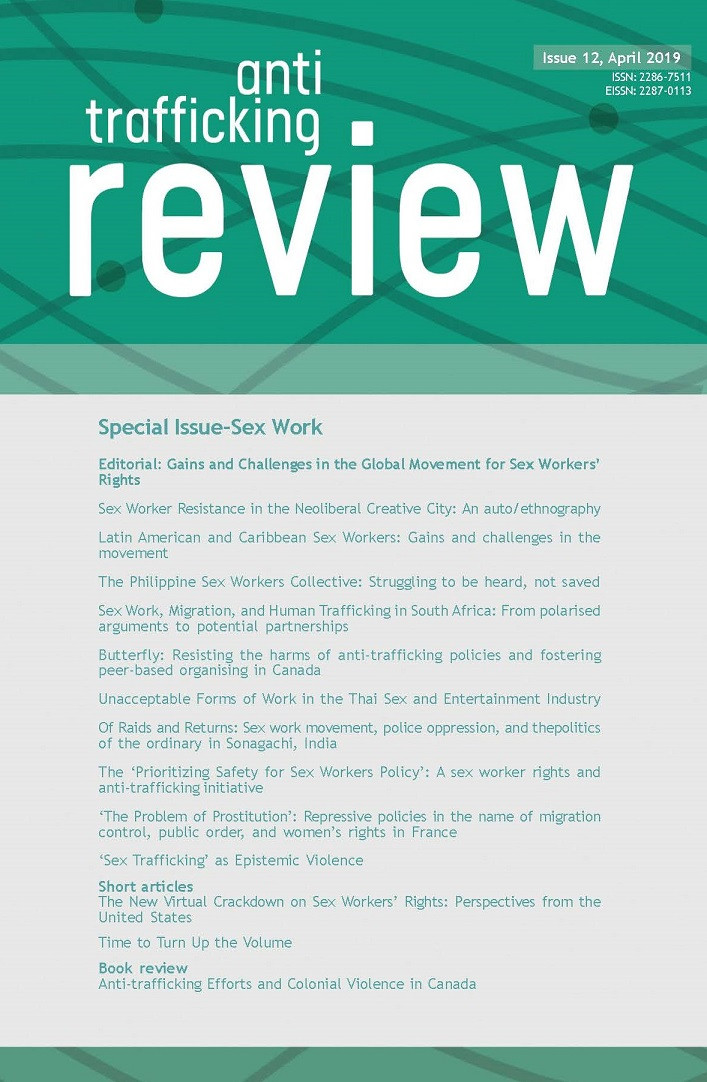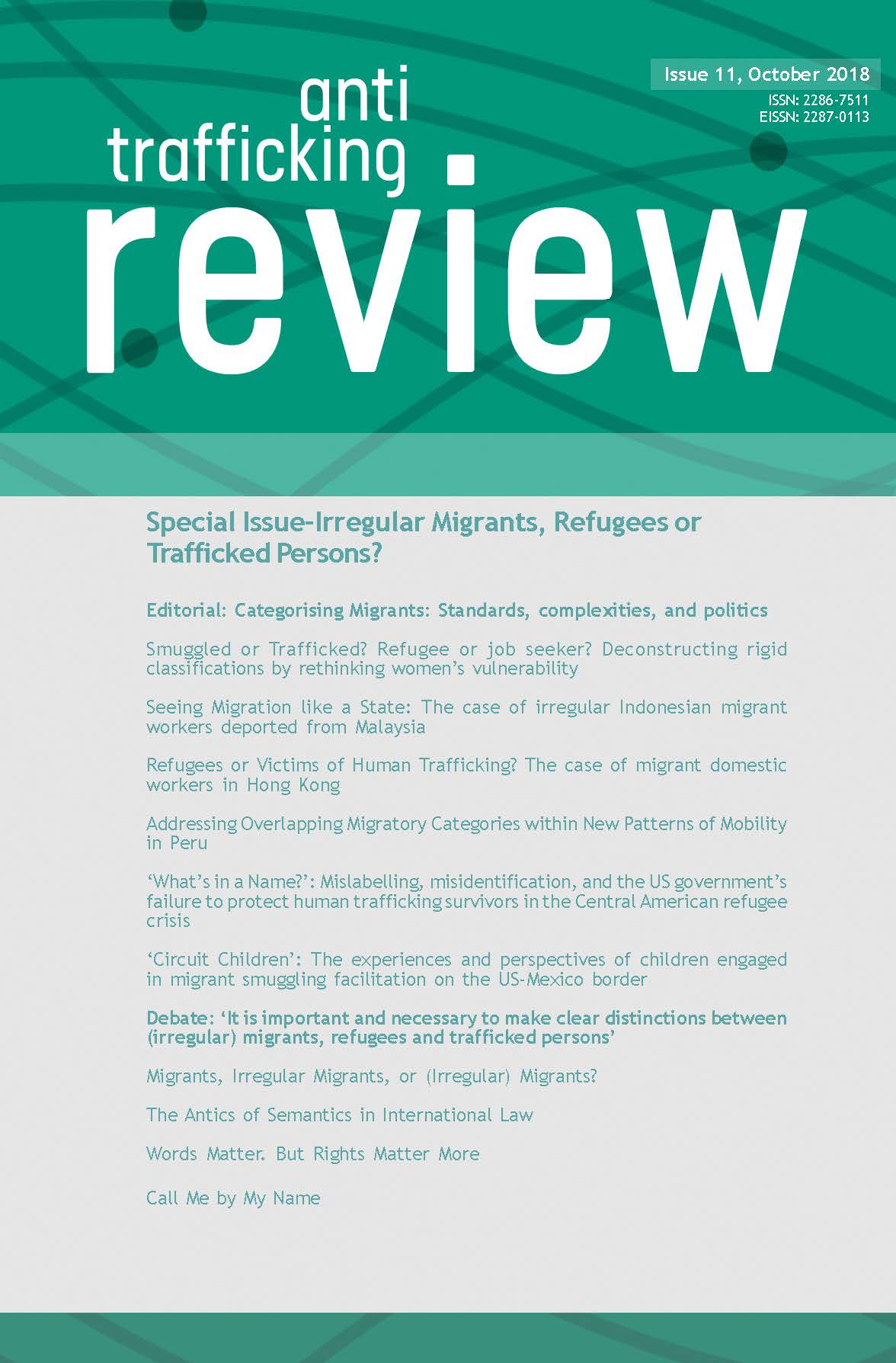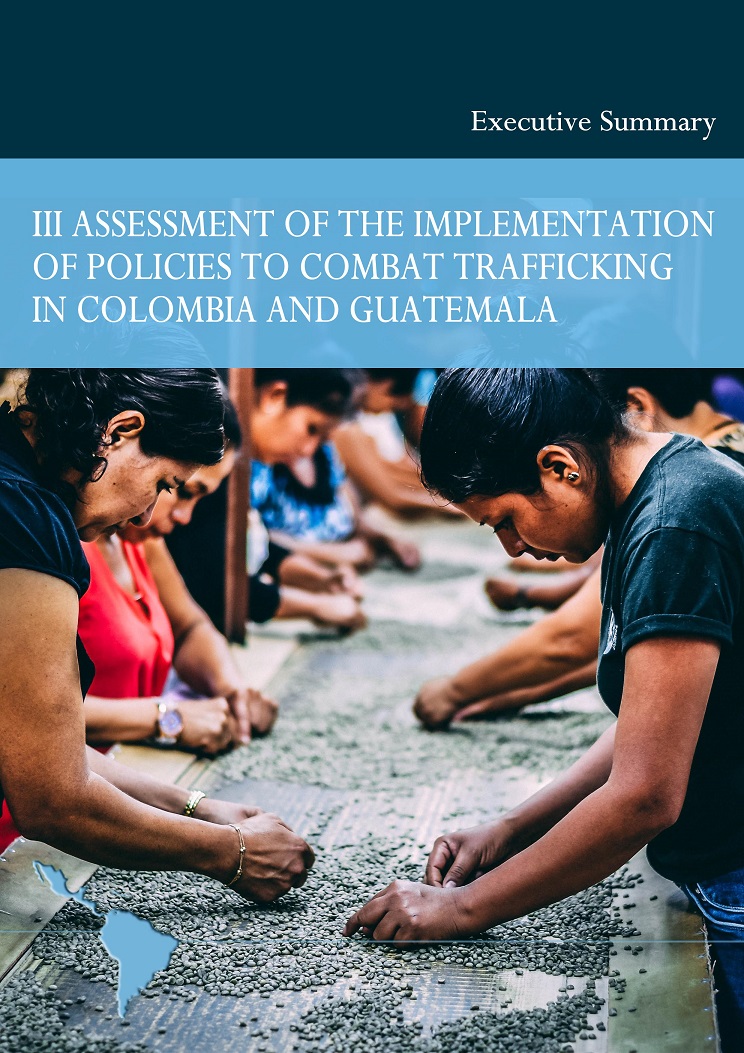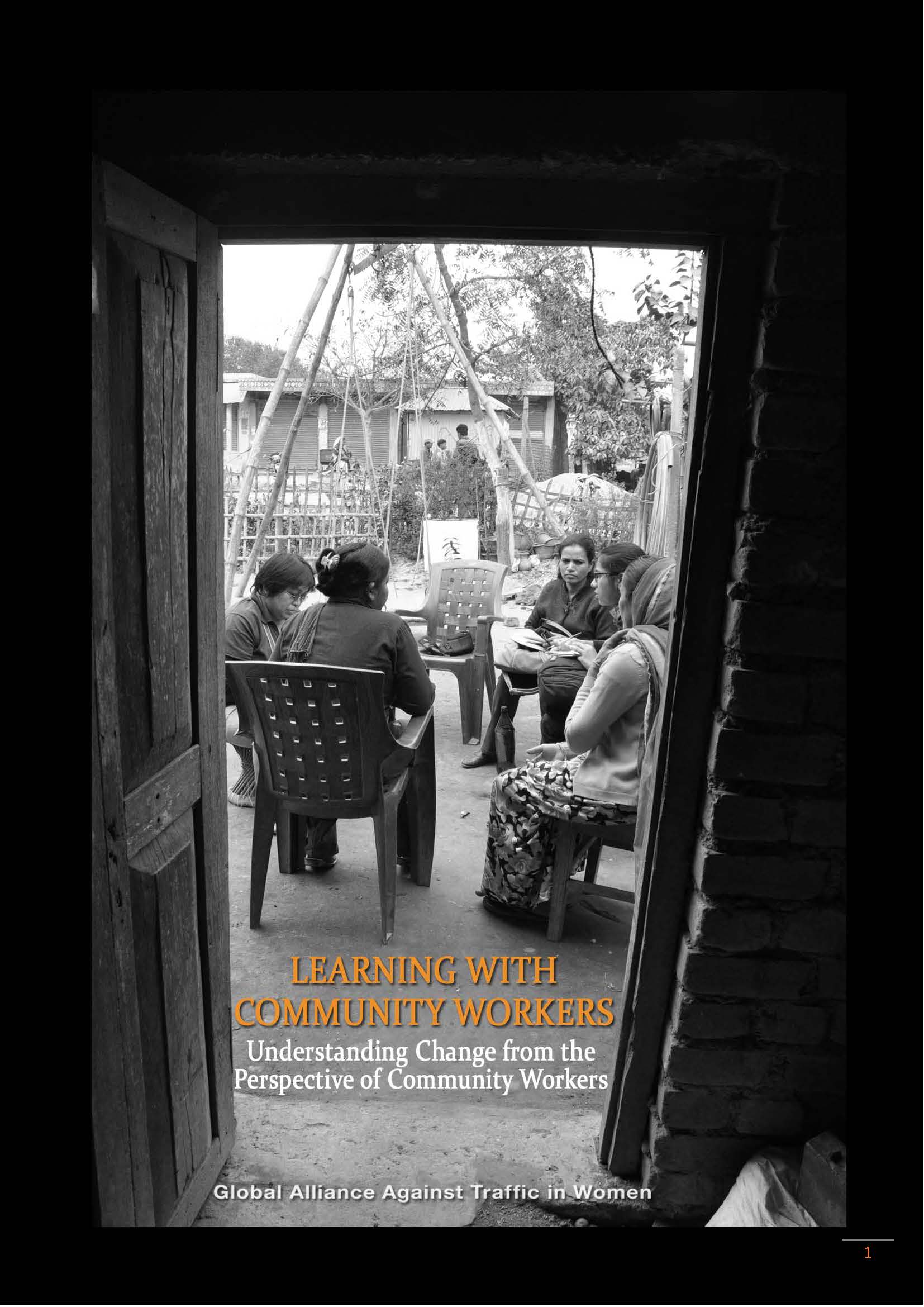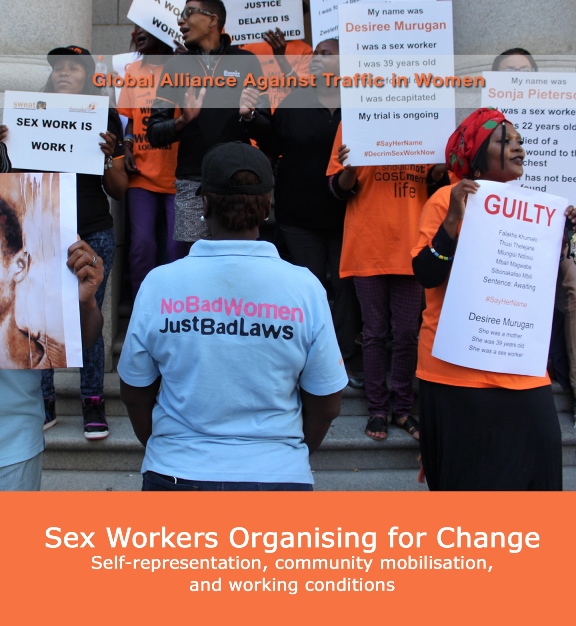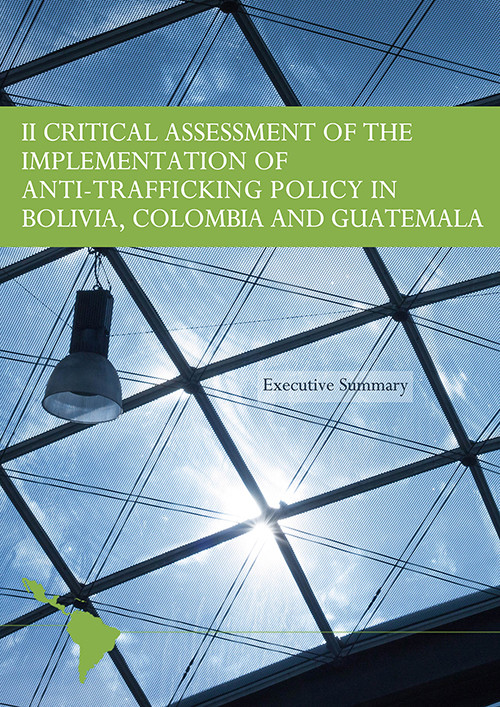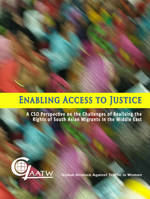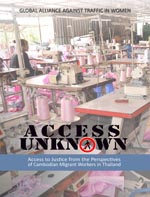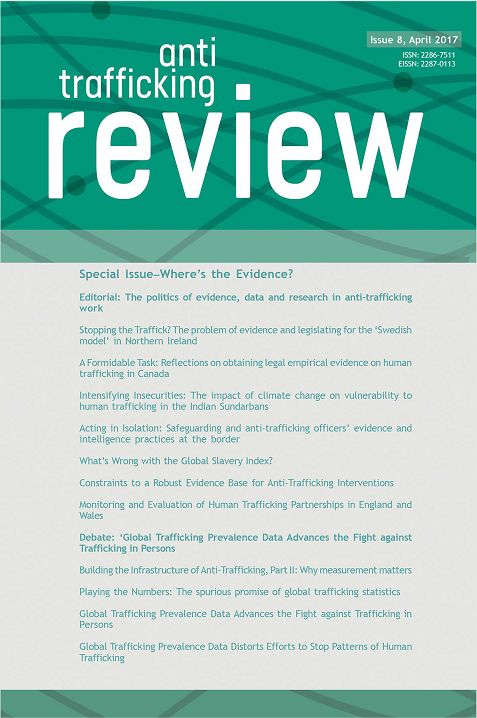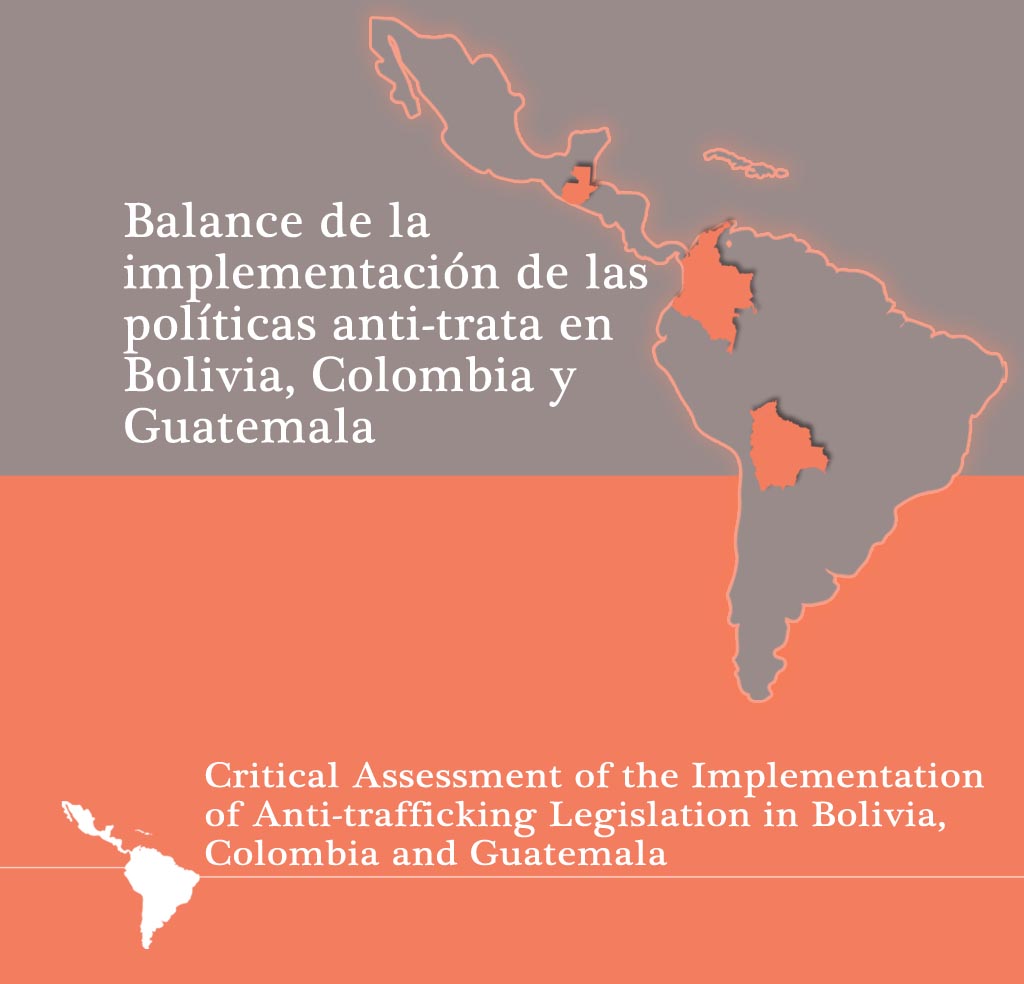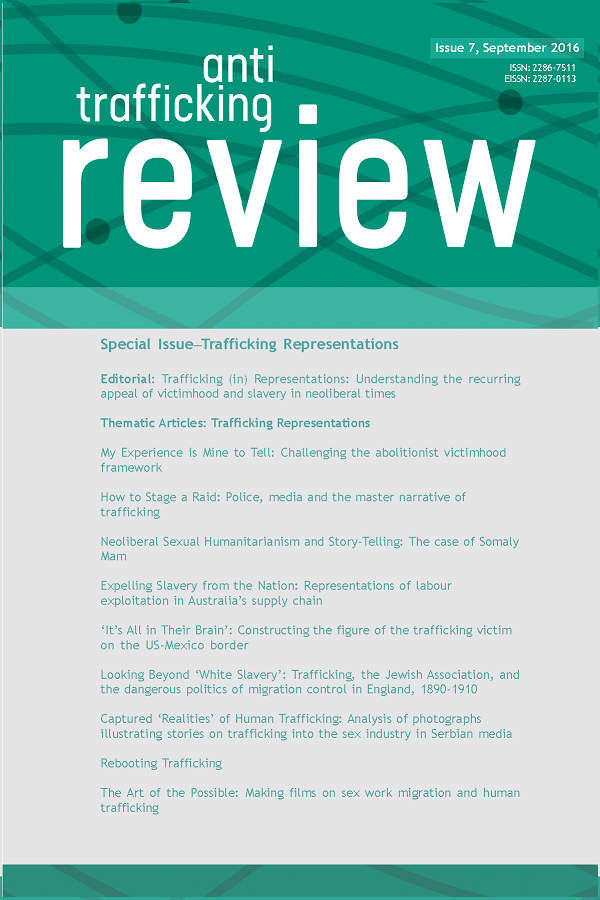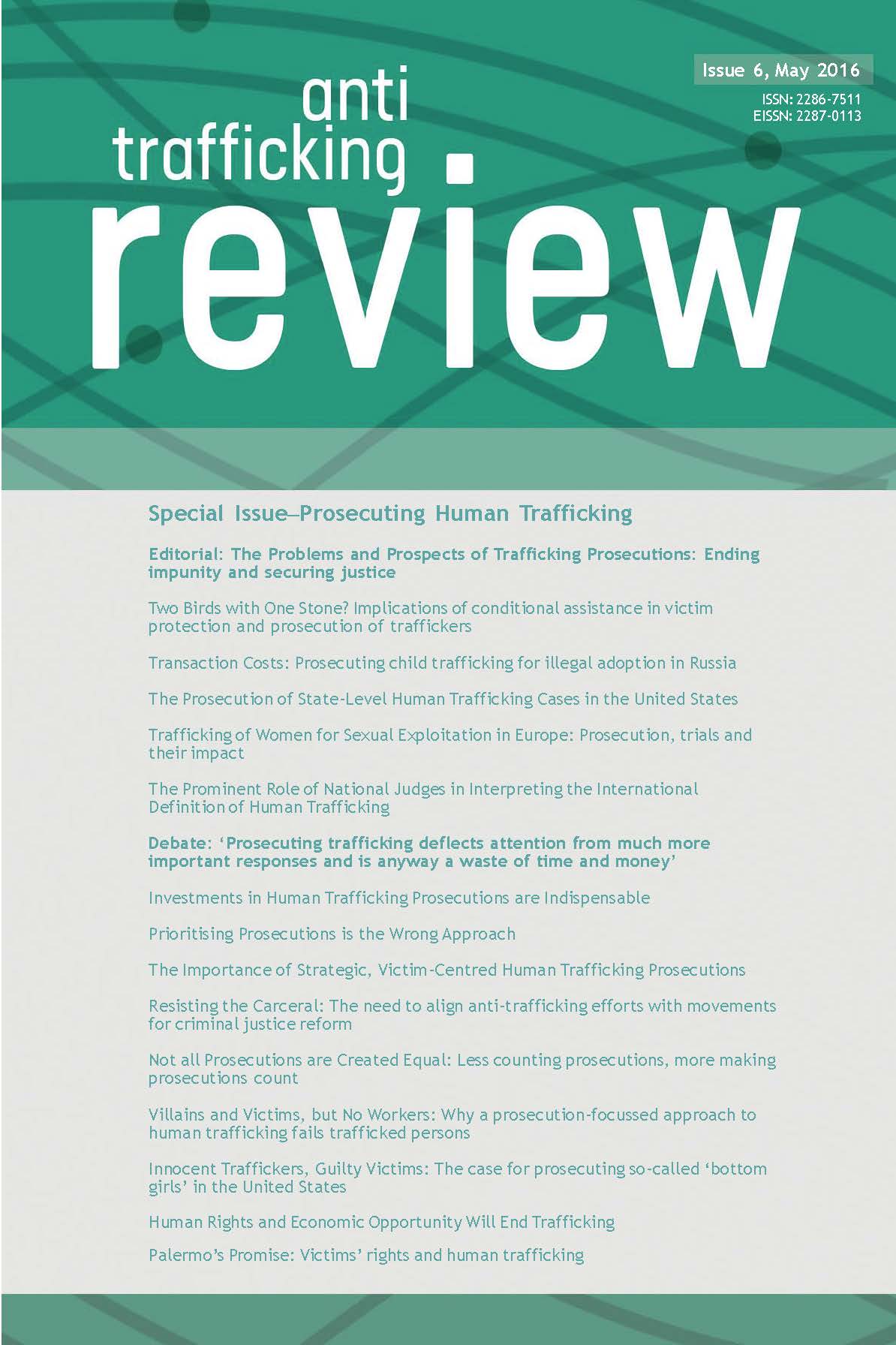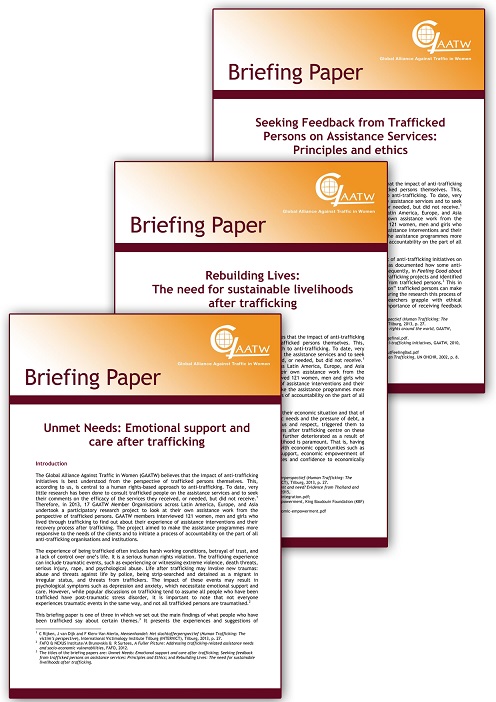E-Bulletin January 2016 - News from our Member Organisations
The Hidden Harms of Anti-Trafficking
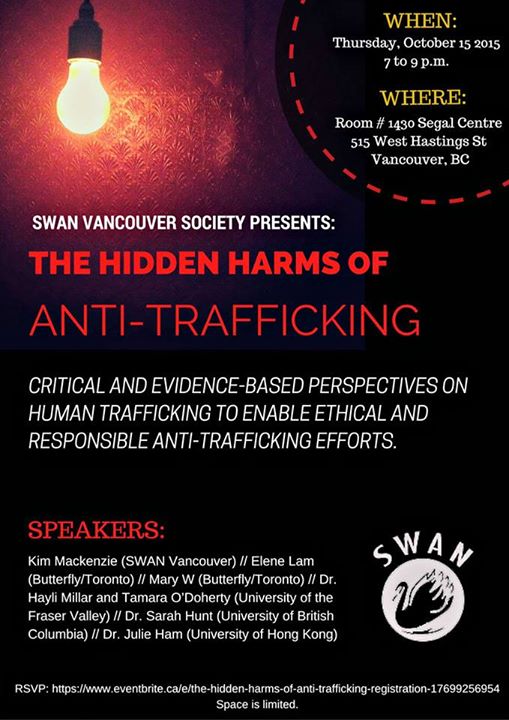 On 15 October, SWAN Vancouver held a forum, entitled ‘The Hidden Harms of Anti-Trafficking’, which brought together representatives of law enforcement, funders, advocates, social assistance providers and members of the general public. Dr Hayli Millar and Dr Tamara O’Doherty from the University of the Fraser Valley presented some of the main concerns raised by criminal justice system professionals in the report ‘The Palermo Protocol and Canada: The Evolution and Human Rights Impacts of Canadian Anti-trafficking Laws’. Mary W of Butterfly, a Toronto-based organisation that works with Asian and migrant sex workers, challenged the audience to re-think their ideas about sex work in her presentation ‘Oh Pretty Sexy! Critical Thinking About Consensual Sex Work’, while Elene Lam, also from Butterfly, presented ‘Anti-Trafficking: New Form of Sexism, Racism and Imperialism’. Dr Sarah Hunt from the University of British Columbia and GAATW Canada, focused in her presentation on the contradictions and tensions between anti-trafficking frameworks and decolonisation. Dr Julie Ham from the University of Hong Kong, discussed Vancouver sex workers’ perspectives on citizenship, residency and belonging in her presentation, ‘Sex Work and the Non-Migrant “Migrant”’. Kim Mackenzie of SWAN concluded the forum with her presentation on SWAN’s recently launched toolkit, ‘Myths, Misconceptions and Migrant Sex Workers: Realities of the Anti-Trafficked’.
On 15 October, SWAN Vancouver held a forum, entitled ‘The Hidden Harms of Anti-Trafficking’, which brought together representatives of law enforcement, funders, advocates, social assistance providers and members of the general public. Dr Hayli Millar and Dr Tamara O’Doherty from the University of the Fraser Valley presented some of the main concerns raised by criminal justice system professionals in the report ‘The Palermo Protocol and Canada: The Evolution and Human Rights Impacts of Canadian Anti-trafficking Laws’. Mary W of Butterfly, a Toronto-based organisation that works with Asian and migrant sex workers, challenged the audience to re-think their ideas about sex work in her presentation ‘Oh Pretty Sexy! Critical Thinking About Consensual Sex Work’, while Elene Lam, also from Butterfly, presented ‘Anti-Trafficking: New Form of Sexism, Racism and Imperialism’. Dr Sarah Hunt from the University of British Columbia and GAATW Canada, focused in her presentation on the contradictions and tensions between anti-trafficking frameworks and decolonisation. Dr Julie Ham from the University of Hong Kong, discussed Vancouver sex workers’ perspectives on citizenship, residency and belonging in her presentation, ‘Sex Work and the Non-Migrant “Migrant”’. Kim Mackenzie of SWAN concluded the forum with her presentation on SWAN’s recently launched toolkit, ‘Myths, Misconceptions and Migrant Sex Workers: Realities of the Anti-Trafficked’.
Engaging the private sector to end human trafficking
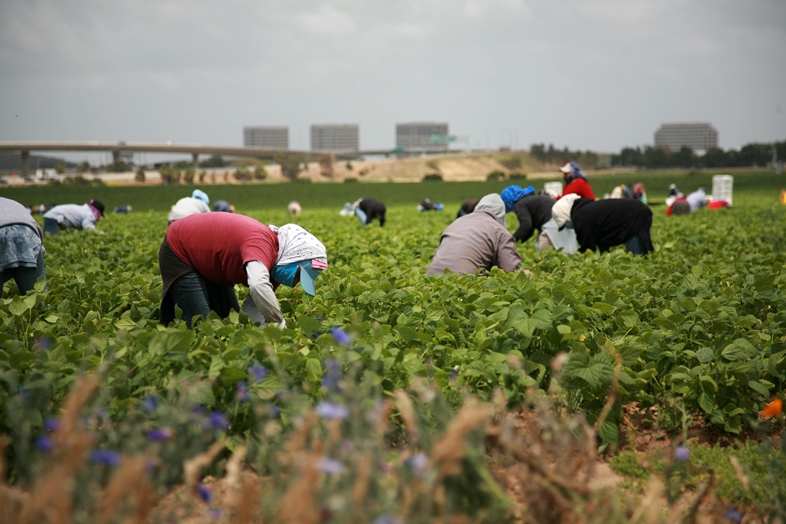 On the occasion of the European day against trafficking in human beings, La Strada International and SOMO published a resource guide for NGOs, entitled ‘Engaging the Private Sector to End Human Trafficking’.
On the occasion of the European day against trafficking in human beings, La Strada International and SOMO published a resource guide for NGOs, entitled ‘Engaging the Private Sector to End Human Trafficking’.
The role of businesses in human trafficking can range from being directly responsible for labour exploitation through coercive recruitment practices to being an important partner in prevention. The guide aims to provide NGOs with knowledge and tools to engage the private sector in their work by providing a wide selection of background materials, ranging from facts and figures to strategic advice.
Although the private sector is increasingly seen as an important stakeholder in anti-trafficking work, European NGOs working in the field have not yet started to fully engage corporations in their strategies and practices.
The Resource Guide aims to close this gap by providing guidance and background information for NGOs. Different vulnerable sectors and the role that corporations could potentially play in contributing to and preventing human trafficking are described. Steps are outlined that businesses can take to avoid contributing to human trafficking, based on existing guidelines and toolkits. The Guide explains UN, ILO and EU business and human rights frameworks and highlights their relevance to anti-trafficking work. Examples of private sector engagement from other NGO networks are given, ranging from campaigns for corporate justice and lodging complaints, to NGO-business partnering and multi-stakeholder initiatives. The last chapter provides information on which strategies NGOs can pursue to engage the private sector to tackle human trafficking and to hold corporations accountable.
Download the Resource Guide and Annex ‘Tools and Resources’.
Feminist Alliances in Sex Work
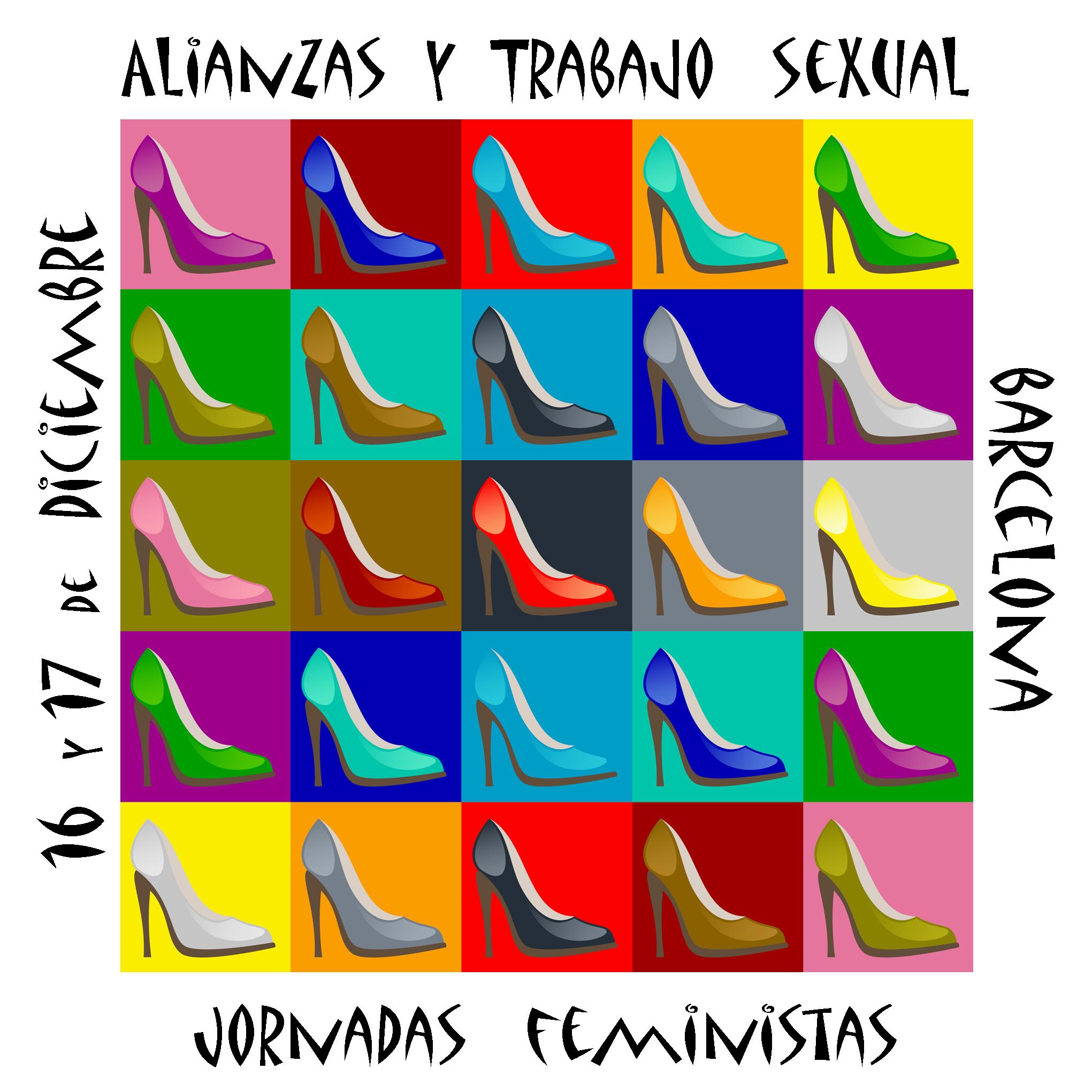 On 16 and 17 December GAATW-IS attended a conference entitled ‘Feminist Alliances in Sex Work’, organised by our Spanish member Genera in Barcelona, Spain. The aim of the conference was to bring together sex workers, activists, anti-trafficking experts, students and academics and discuss the role of the sex workers rights movement within feminism and how alliances can be built with other movement for rights.
On 16 and 17 December GAATW-IS attended a conference entitled ‘Feminist Alliances in Sex Work’, organised by our Spanish member Genera in Barcelona, Spain. The aim of the conference was to bring together sex workers, activists, anti-trafficking experts, students and academics and discuss the role of the sex workers rights movement within feminism and how alliances can be built with other movement for rights.
The conference focused around three main topics: ‘Abolitionism and neoliberal regulation: or how to build a non-capitalist model of sex work regulation’, ‘Feminist alliances in sex work, the role of feminist movements in the empowerment and self-organization’ and ‘Trafficking, looking for a self-discourse from the sex worker’s rights movement’. During the panels and workshops, participants spoke about stigma, their experience with the criminalisation of sex work in different countries and violence experienced by the police, and the frustration with the abolitionist discourse, equating all sex work with violence against women and trafficking. Participants stressed that the sex workers rights movement part of the feminist movement and that sex workers’ struggle against stigma, violence and discrimination is common for all women, however, they have often felt excluded from the ‘mainstream’ feminist movement. The sex workers rights movement is also a movement against poverty, oppression and racism and for sexual and reproductive rights, as well as labour rights. In this sense, the sex workers rights movement is a natural ally of organisations working for the rights of women, migrants, workers, LGBT people and victims of trafficking. Regarding human trafficking, it was pointed out that sex workers have the most interest in a ‘clean’ sex industry, without violence and trafficking, and that they should be consulted on the development and implementation of anti-trafficking measures. The conference ended with a small demonstration on the occasion of the International Day to End Violence against Sex Workers.
Photos, videos and presentations from the conference can be found on the conference website.
ECPAT Guatemala successfully lobbies to raise the legal marriage age to 18
In November Guatemala’s congress voted to raise the minimum legal age for marriage to 18. It had been 14 for girls and 16 for boys, though girls often married or entered legal unions much younger. This deeply rooted traditional practice often resulted in violations of children’s rights and reduced their access to education and opportunities in life.
ECPAT-Guatemala attended meetings of the Bureau of Security and Justice and made contributions to the drafting of the law, based on the provisions of the Law on Protection of Children and Adolescents and the results of the study on trafficking in persons for the purposes of sexual exploitation, labour exploitation and forced marriage. ECPAT-Guatemala team also made a brief investigation into the regulation of marriage of minors in other countries of Latin America and their respective exceptions when the legal age for marriage is 18 years. The result of this research was presented to the Bureau for Girls.
The Civil Code was reformed in November, prohibiting the marriage of persons under 18, but exceptionally, and on reasonable grounds, a judge may authorise the marriage of girls who have turned 16.
María Eugenia from ECPAT Guatemala welcomed this legislative change: “The amendment to the Civil Code is a very important step to enforce the human rights of Guatemalan children and adolescents. The increase of the marriage age will reduce the percentage of pregnancies among girls and adolescents and maternal deaths and newborn mortality in the country. It will also contribute to breaking the cycle of poverty and improve girls’ access to education, health and a productive life.”
Comprehensive analysis of Hong Kong legislation relating to human trafficking, corruption and money laundering and Data Protection Guidelines to better protect data of victims of human trafficking
In 2015, Liberty Asia released two new publications, in collaboration with Reed Smith Richards Butler.
The Hong Kong Legal Gap Analysis provides a clear and factual insight into Hong Kong’s existing legal framework. Hong Kong has not ratified the Palermo Protocol and the existing definition of human trafficking focuses only on cross-border trafficking for exploitation in prostitution. This excludes trafficking for labour exploitation, debt bondage, domestic servitude, slavery or practices similar to slavery or for the removal of organs, while forced labour is not even a criminal offence in Hong Kong. There is also no National Action Plan or a National Referral Mechanism, which would strengthen Hong Kong’s efforts in the areas of identification, prevention, prosecution and protection of the victims.
The gap analysis identifies key areas to strengthen the framework and offers insight into the interaction of the anti-corruption and anti-money laundering legal regime with human trafficking, forced labour and slavery offences.
You can download the full report or the overview.
The Data Protection Guidelines seek to clarify the legal protections available for victims of trafficking and to assist NGOs with protecting sensitive data to better serve their clients, and, ultimately strengthen the fight against slavery. Given the great quest for better data and the interest of numerous stakeholders in data collection, it is likely that essential data protection measures will unintentionally be overlooked. Somewhere along the lines the data becomes a statistic, a name and a number that is shared and disseminated, divorced from the vulnerable individual who owns the data. Misused sensitive information can lead to the identification of a very vulnerable individual who may be at risk of reprisals from a perpetrator. It is increasingly important that survivor data is treated and protected in accordance with the protections afforded by the law to ensure the proper checks and balances as prescribed by the law are used to protect vulnerable individuals.
‘From Peace at Home to Peace in the World: Make Education Safe for All’
16 Days of Activism against Gender-Based Violence
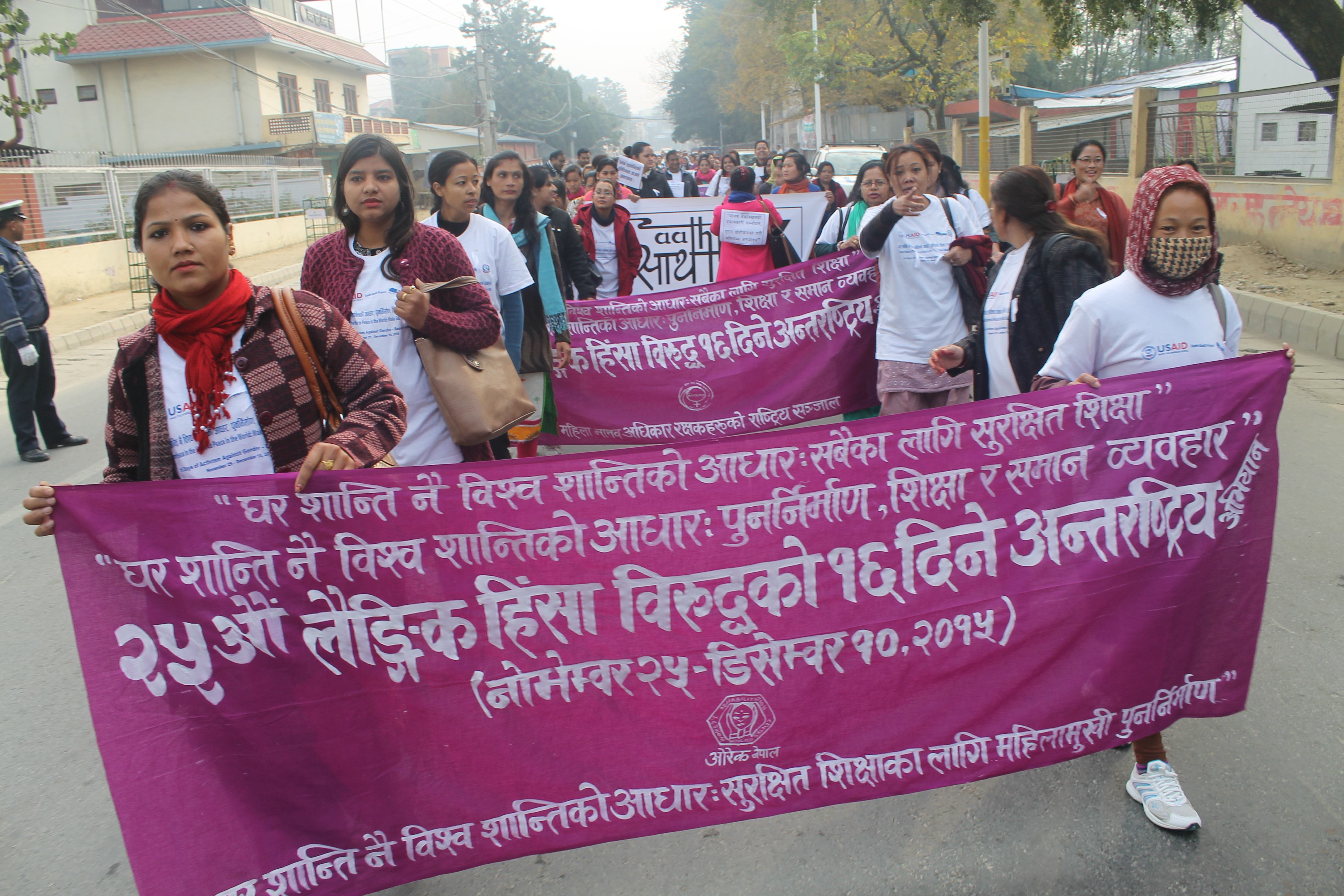
The first day, International Day for the Elimination of Violence against Women, was observed by coordinating and participating in a rally organised by the Ministry for Women, Children and Social Welfare and National Women’s Commission (NWC). The rally started from Bhrikuti Mandap and ended in Basantapur, where an assembly was organised. There was participation of different government and non-government organisations working to prevent violence against women in the country. There were banners and placards carried to relay the message.
The same day, WOREC launched Anbeshi during a ceremony at NWC. Anbeshi is a yearbook containing cases of violence against women from all over Nepal that WOREC has been publishing for the past eight years. In this year’s Anbeshi, WOREC recorded 1930 cases of violence against women directly and 598 cases have been collected through various national newspapers. Among these almost 70% were related to domestic violence, 14% to social violence, 5% to rape and sexual violence, 4% to trafficking and attempt to trafficking and 1% murder.
On the following days, WOREC held orientation programmes entitled ‘Widening Knowledge: Sharing dimension and Status of Violence against Women through Anbeshi’ in different colleges. The team of WOREC visited colleges in Kathmandu and Lalitpur to share, inform and sensitise both students and teachers about the dimension, status, correlation and magnitude of Violence against Women (VAW) and its adverse effects on women through the findings of ‘Anbeshi’.
The programme was exclusively designed to focus on students and teachers to ensure women and girls’ right to education in a safe environment. When youngsters are involved in a campaign and informed about their rights, the deeper social transformation is more likely to happen sooner. WOREC believes in youth as a change maker against violence against women by addressing behavioural and structural issues that stimulate VAW.
On 30 November there was an interaction programme organised on the topic ‘Revisiting SAARC Convention against Trafficking to Strengthen its Comprehensiveness and Effectiveness’. The programme was organised to reflect the existing realities of trafficking in South Asia and the current relevance of SAARC Trafficking Convention and develop appropriate text and plan of action along with the government of Nepal to propose for its revision.
Representatives from government organisations, constitutional bodies, international non-government organisations, trade unions and media took part in the programme. The SAARC Convention on Preventing and Combating Trafficking in Women and Children for Prostitution was signed in 2002 and was considered to be a landmark in eradicating trafficking in the region. However, the Convention does not comply with internationally agreed definitions of trafficking and is limited to trafficking for commercial sex work only. It also completely excludes trafficking of men. Over the years, the trend of trafficking has changed significantly from trafficking for commercial sexual exploitation to trafficking for forced labour, organ trading and servitude, among others. The Convention restricts women’s right to free movement and criminalises voluntary sex work, and addresses the problem of trafficking from a moralistic and protectionist perspective. The programme came out with an action plan and formed a working group to develop recommendations for the government of Nepal.
On 3 December WOREC organised an Oratory Contest, where students from different colleges expressed their opinion about women’s rights and violence against women.
On 4 and 5 December there was an interaction programme with the earthquake survivors and the staff working in the Sneha Campaign. The Sneha Campaign was initiated by WOREC post-earthquake to support the survivors, especially pregnant and lactating women, women with disabilities, adolescent girls and elderly women. Since then many activities, including psychosocial counselling, orientations, trainings and health camps have been conducted in 12 earthquake affected districts of Nepal. On the occasion of the 16 Days of Activism, there was experience sharing of the staffs working for the relief activities regarding their challenges, leanings and achievements. There were also discussions regarding the participation and access of women in the reconstruction and rehabilitation plan of the government.
On the final day of 16 Days of Activism, WOREC participated in a rally organised by the National Human Rights Commission (NHRC).



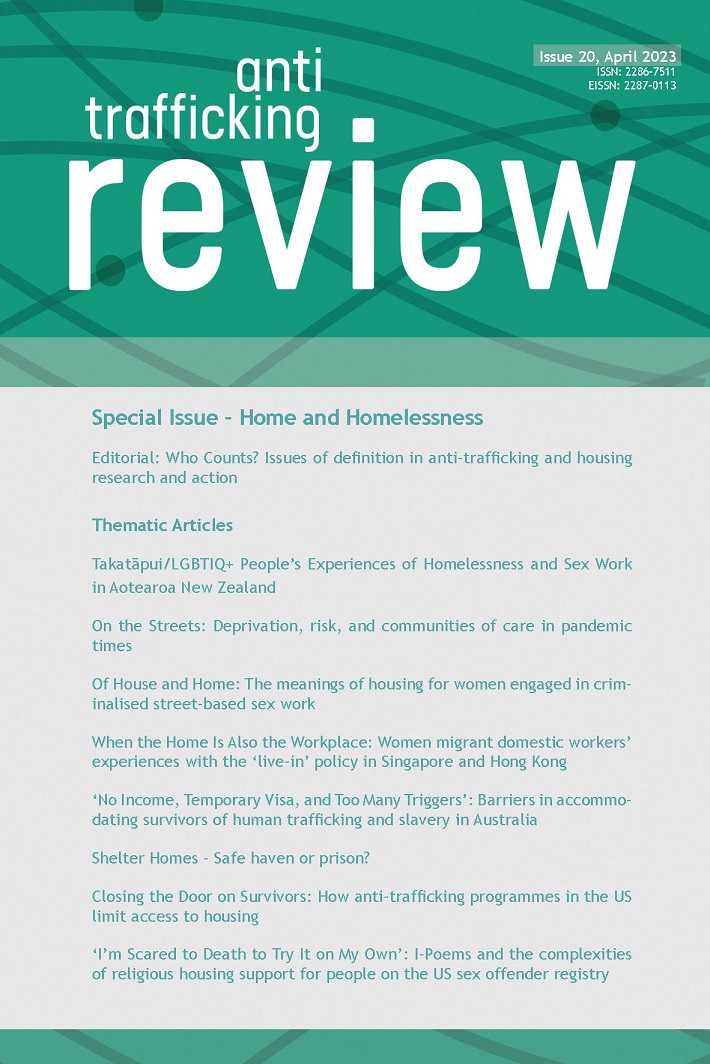
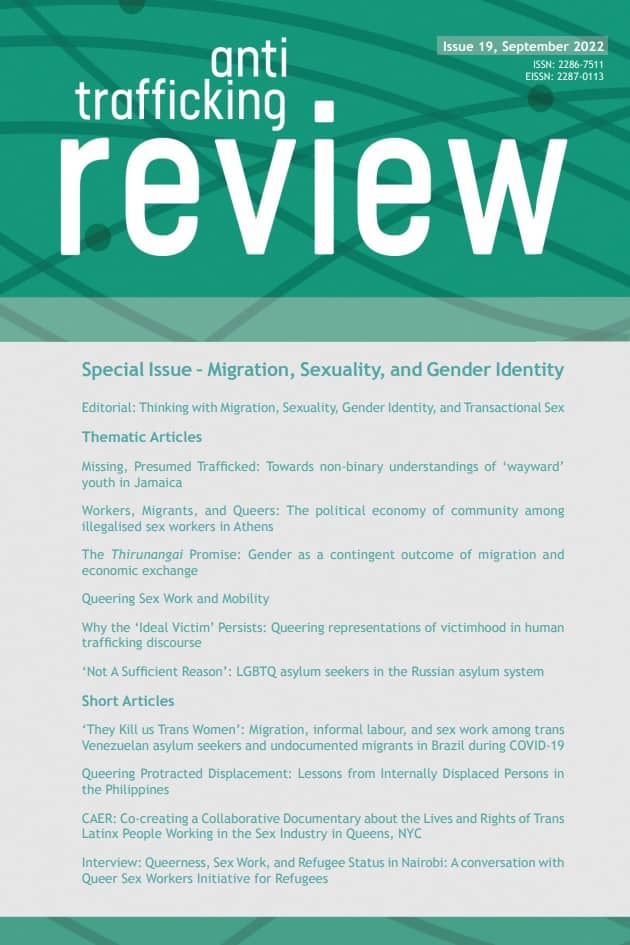
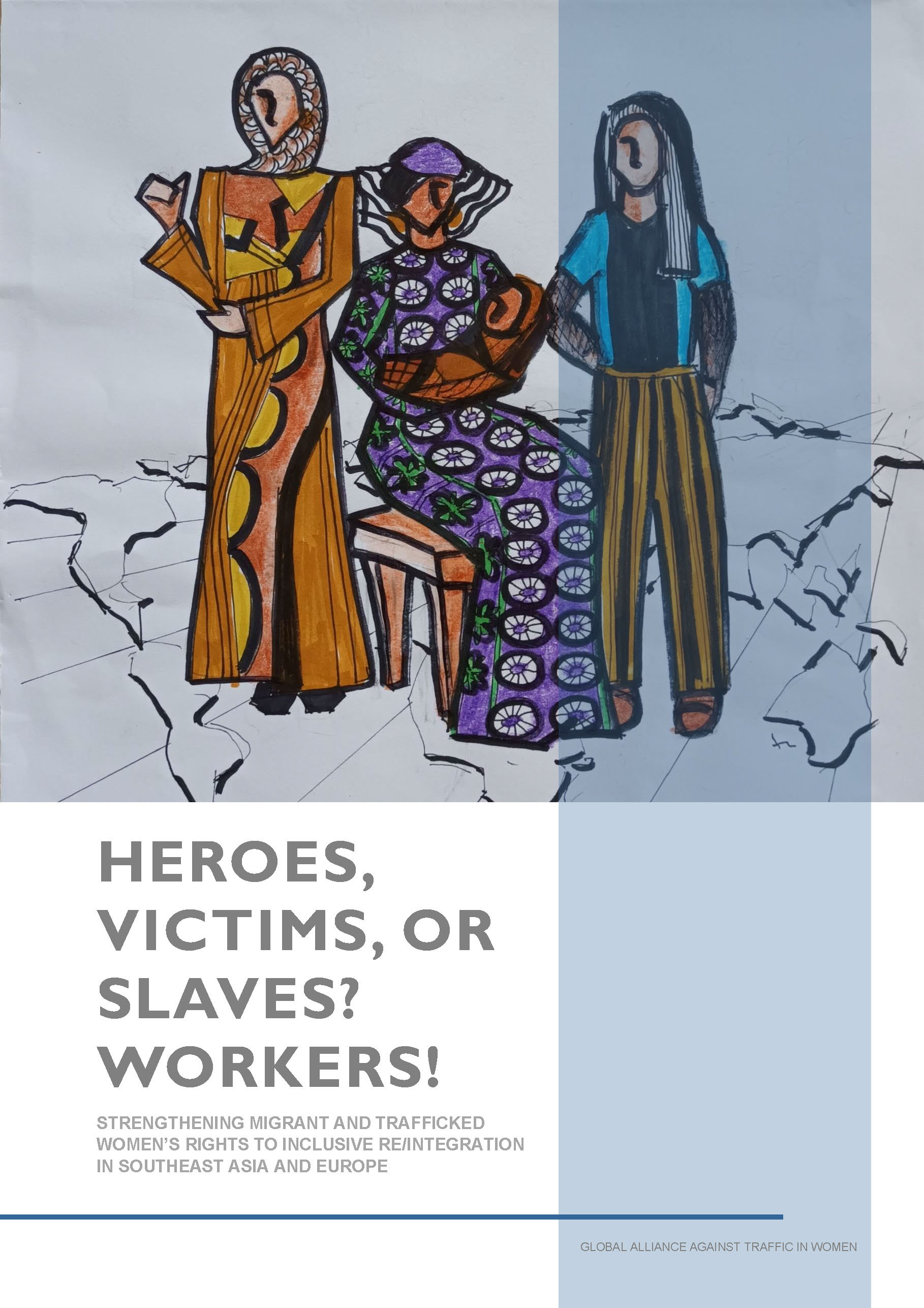
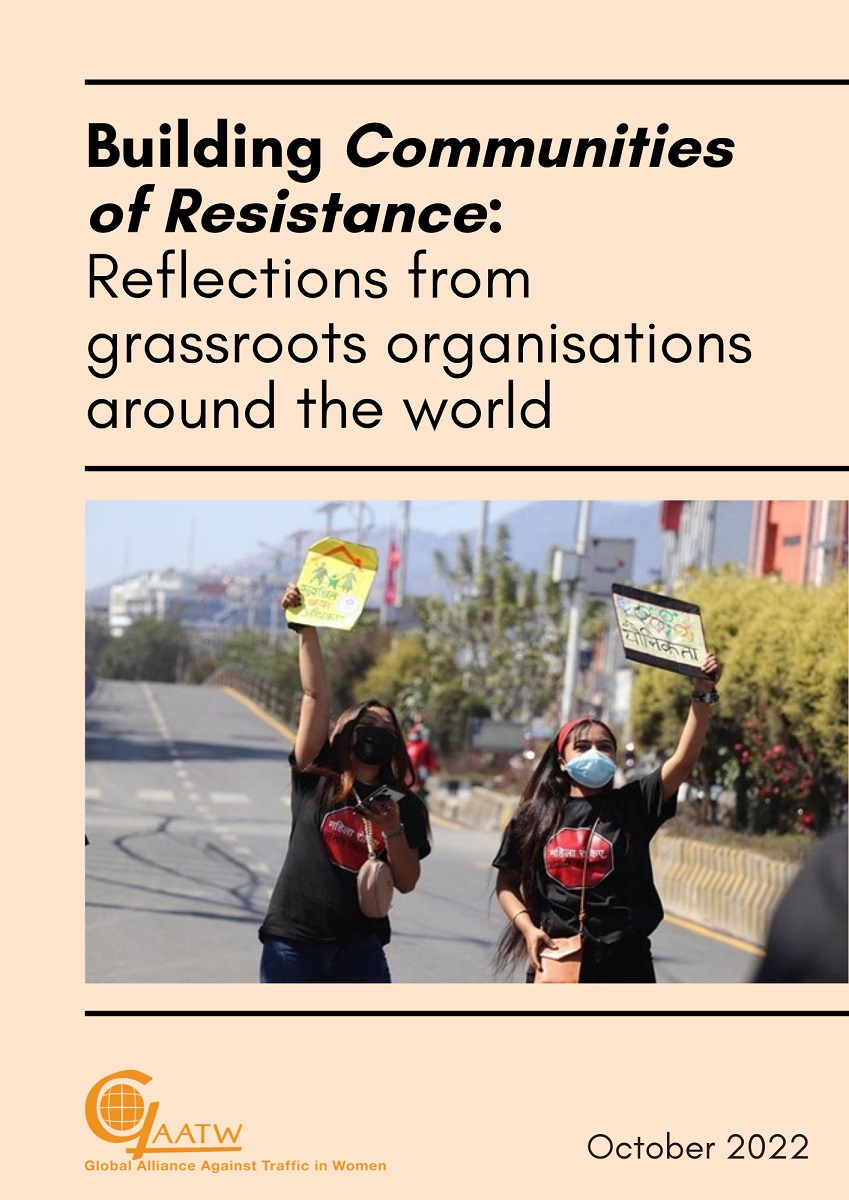
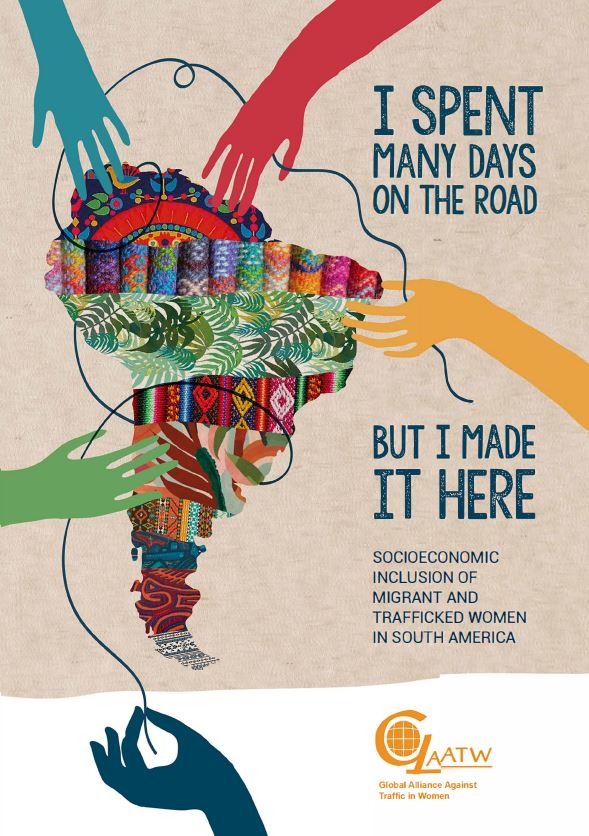
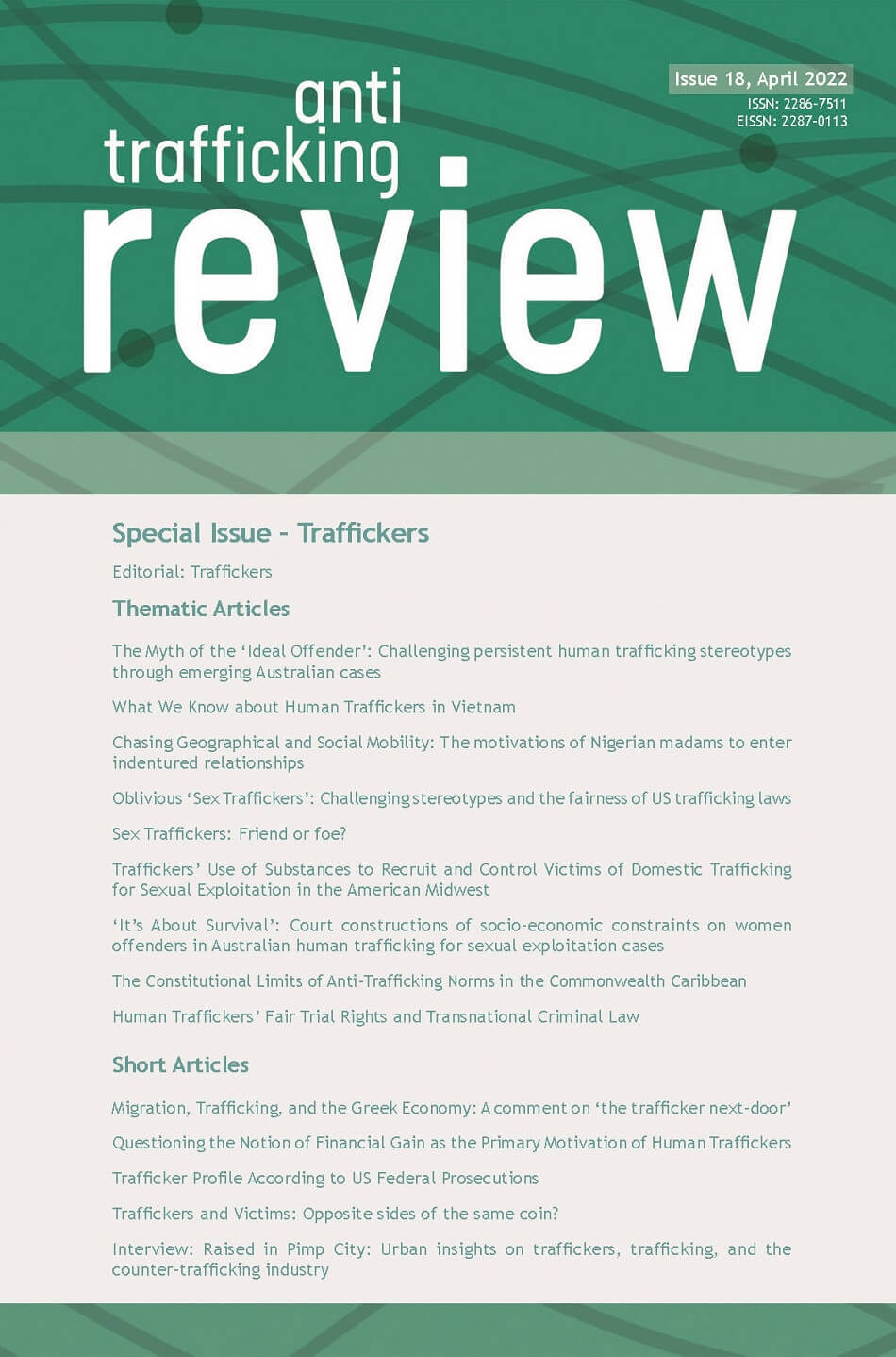
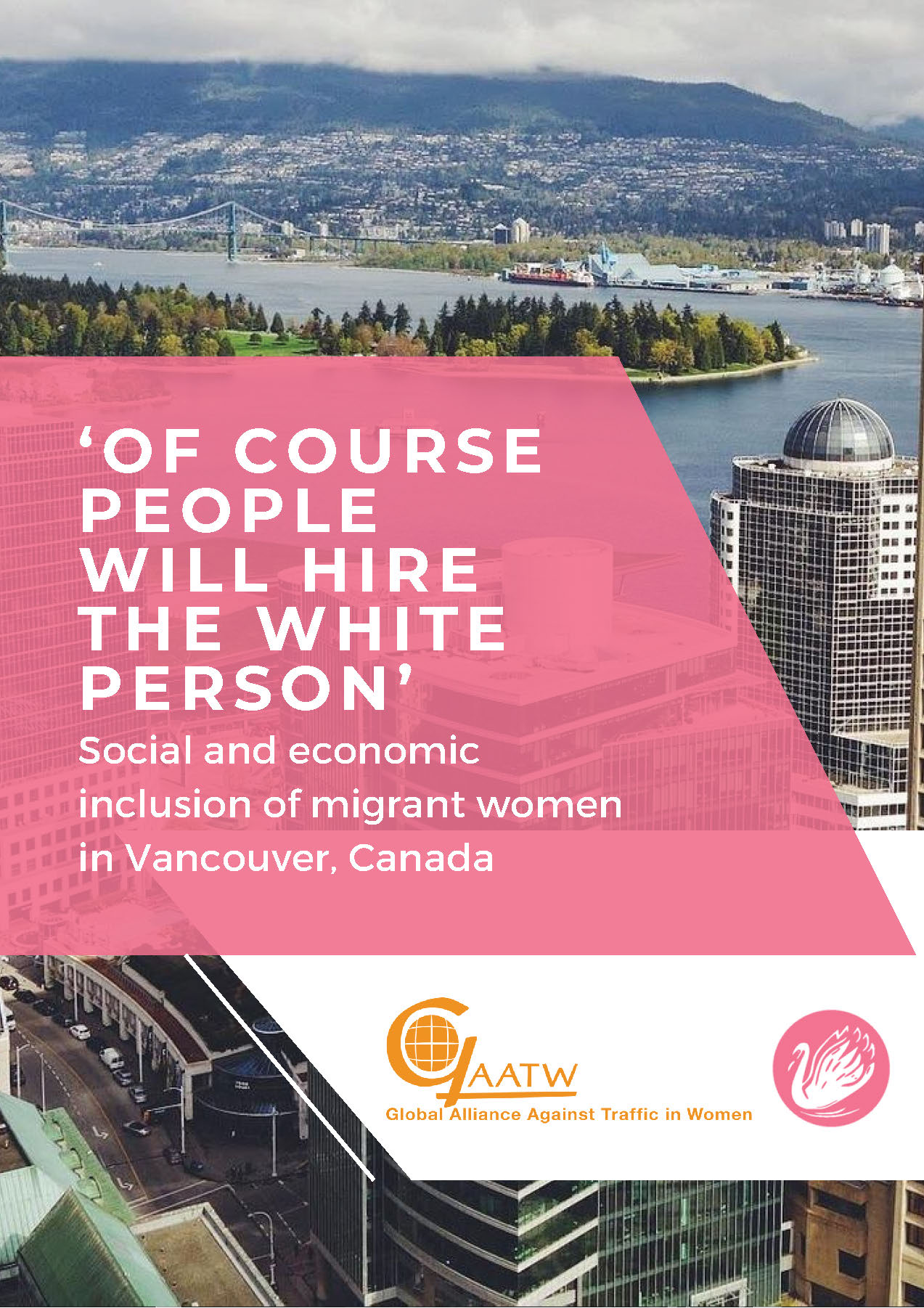
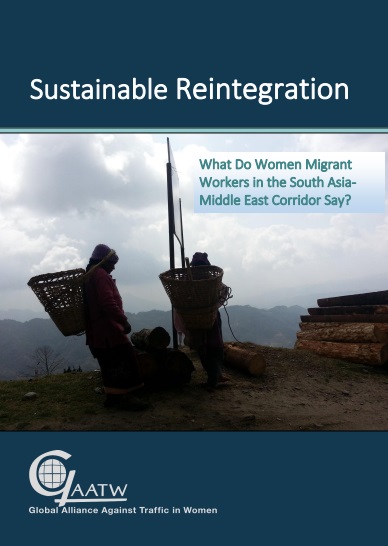
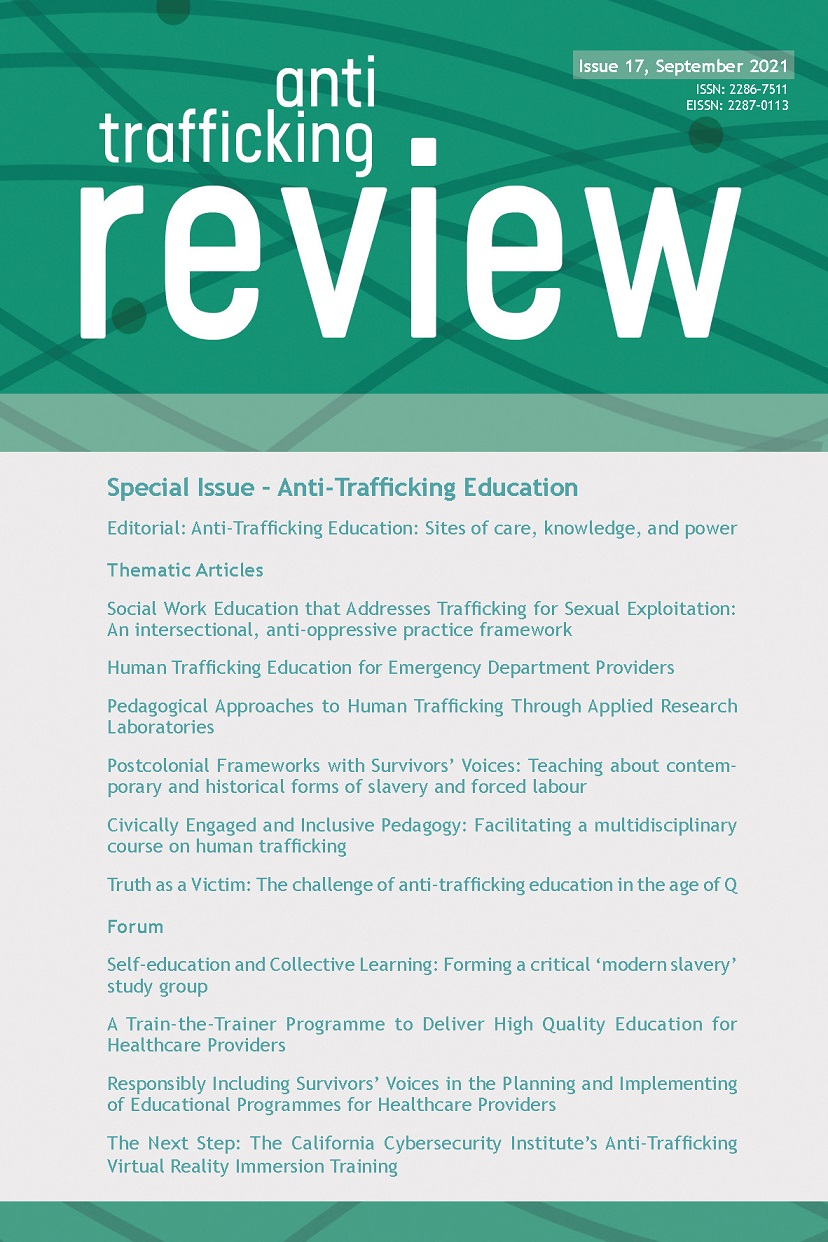
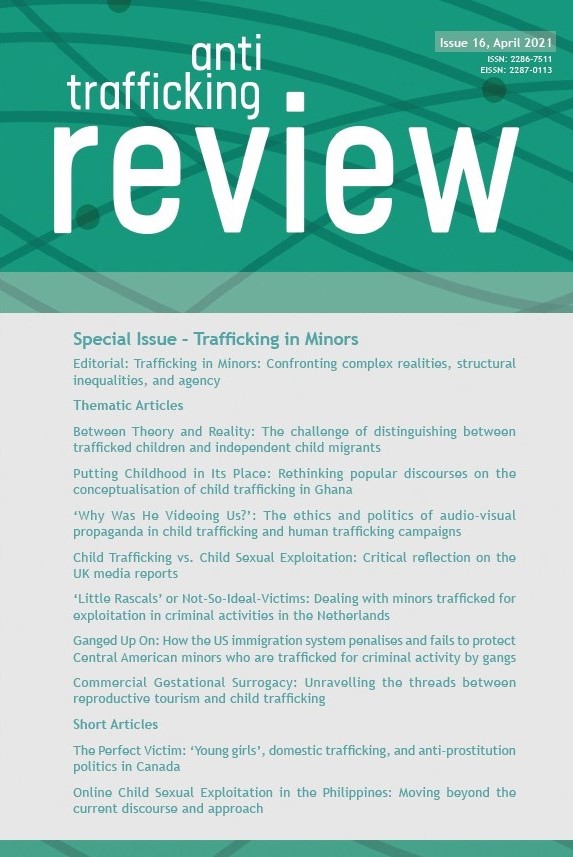
.pdf - Adobe Acrobat Pro 2_8_2021 4_36_32 PM.png)
